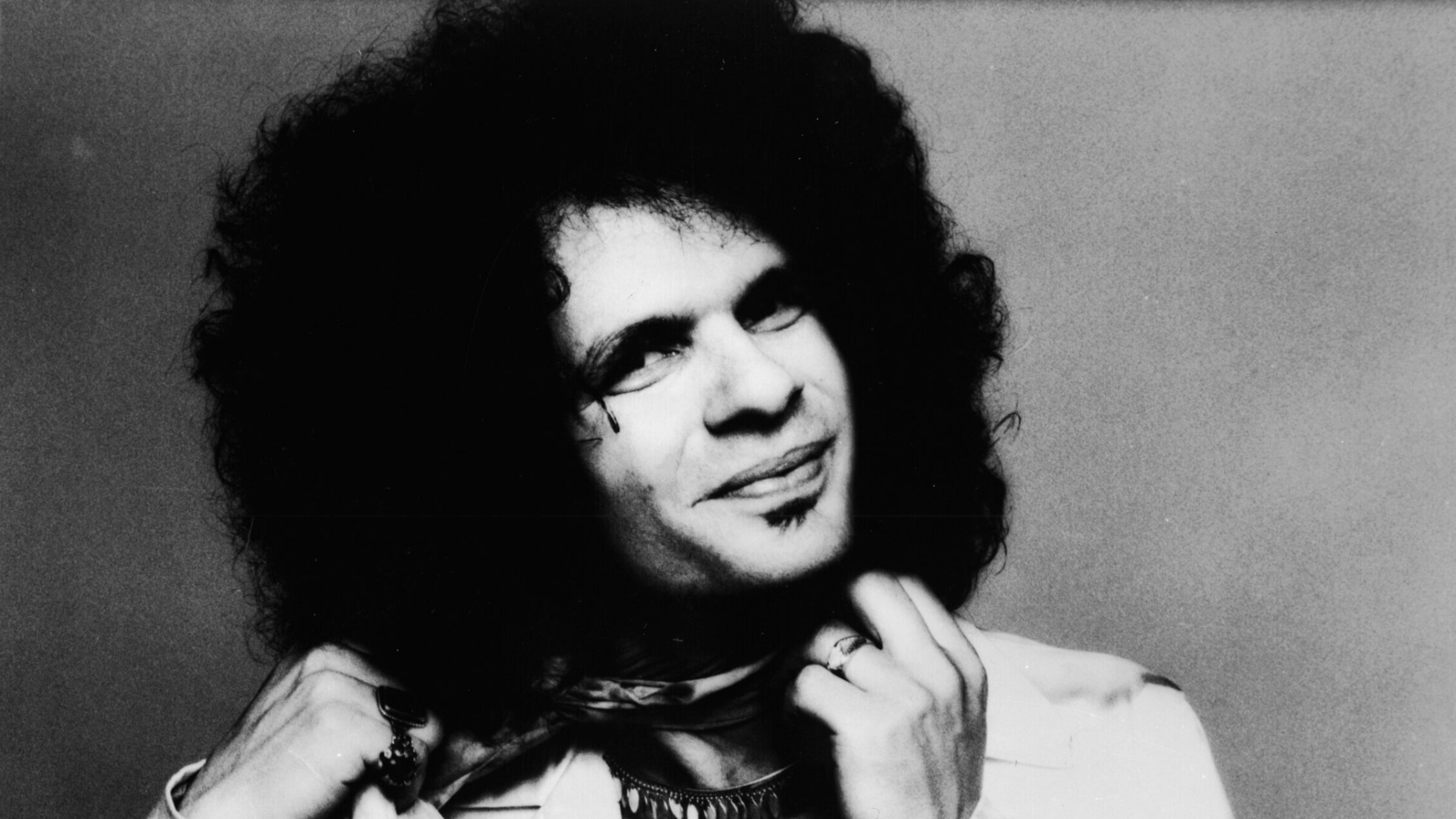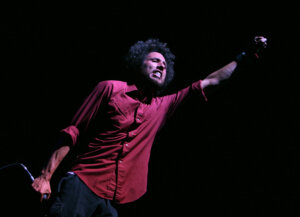The Rock & Roll Hall of Fame just got a little more Jewish (and a little less rock ‘n’ roll)
Al Kooper and Rage Against the Machine are among this year’s inductees

Al Kooper, whose given name is Alan Peter Kuperschmidt, was born in Brooklyn and grew up in Hollis Hills, Queens. He’s seen here in 1976. Photo by Getty Images
The annual Rock & Roll Hall of Fame honor roll never fails to astonish and disappoint a host of second-guessers, and the list of this year’s inductees is no exception. Skeptics have already jumped on this morning’s announcement of the names of those who will be honored with a plaque in Cleveland, where the Hall of Fame is based, noting that, depending on how one defines rock music, almost none of this year’s models play rock.
Worthy of induction as they may be, country singer Willie Nelson, art-pop singer Kate Bush, hip-hop artist Missy Elliott, pop stars Sheryl Crow and George Michael, and R&B vocal group The Spinners, are no one’s idea of hall-of-fame-worthy rock artists. (Then again, they are apparently someone’s idea.) Only Rage Against the Machine plays music that is recognizably rock, although it can be argued that the other performers play music that either influenced or was influenced by rock music, if one uses the term in a big-tent fashion to mean popular music of the rock era.
Another annual disappointment is the failure of the rock hall to elevate Warren Zevon into its pantheon. Zevon, whose father was a Russian-Jewish immigrant, enjoys a fanatical following among a subset of musicians and music-industry types — some of whom campaign for Zevon’s admission to the Hall — making it all the more puzzling why the maniacal rock singer-songwriter keeps getting passed over.
Scratching the surface of this year’s award-winners reveals a few Jewish stories. George Michael’s maternal grandmother was Jewish. The Spinners’ 1979 hit, “Working My Way Back to You,” was co-written by Jewish songwriter Sandy Linzer.

Topping off a late-career revival of her song “Running Up That Hill,” propelled by its predominant use in season four of the popular sci-fi horror Netflix series Stranger Things, Kate Bush is being honored with a place in the rock hall. Bush, who was raised Catholic, was reportedly a volunteer at Kibbutz Kissufim in Israel during the winter of 1977-78. Bush’s songs include “The Song of Solomon” inspired by that ancient king’s lustful love poetry; “Houdini,” based on the real-life escape artist Harry Houdini, born Erik Weisz to a Jewish family in Budapest in 1874, and “Babooshka,” whose title is an alternative spelling of a Russian-derived Yiddish word for a grandmother or elderly woman (or the headscarf she wears).
It may surprise some to learn that several members of Rage Against the Machine boast Jewish ancestry. Singer-lyricist Zack de la Rocha of the politically inclined hard-rock group claims Sephardic descent through his Mexican-American father. And drummer Brad Wilk, who co-founded Rage with de la Rocha and guitarist Tom Morello, is of Polish-Jewish descent.
Al Kooper, a kind of Zelig of rock ‘n’ roll, snuck into the Hall of Fame by garnering its little-known “Musical Excellence” award. (Previous honorees in the category include Ringo Starr, Leon Russell, Billy Preston, LL Cool J, and Nile Rodgers.) Kooper, whose given name is Alan Peter Kuperschmidt, was born in Brooklyn and grew up in Hollis Hills, Queens. Kooper began his multifaceted career as a songwriter and guitarist, joining the New Jersey-based Royal Teens — who had a No. 3 hit with the song “Short Shorts” — at age 14. By 1960, Kooper was part of a songwriting team responsible for “This Diamond Ring,” a No. 1 hit for Gary Lewis & the Playboys in 1965, and “I Must Be Seeing Things” and “She’s Not There,” recorded by Gene Pitney.
Kooper was a member of the New York City-based Blues Project, sometimes jokingly referred to as the “Jews Project” by musical insiders, as its membership included tribesmen including Steve Katz, Danny Kalb and Roy Blumenfeld. Kooper took Katz with him when he formed the horn-heavy rock group, Blood, Sweat & Tears in 1968. Kooper also helmed the legendary one-off Super Session album, featuring guitarists Mike Bloomfield and Stephen Stills, acting as producer and providing keyboards and guitar. (The album included the song “Stop,” co-written by Mort Shuman and my cousin, Jerry Ragovoy.)
Over the years, Kooper worked as a musician and producer with a veritable who’s who of rock music, including the Rolling Stones, The Who, Jimi Hendrix, George Harrison, Roy Orbison, The Tubes and Alice Cooper. In what might be one of the most unusual pairings in music history, Kooper discovered a regional group gigging around Atlanta in 1972. He signed them to a management contract and to his record label, which was distributed by MCA Records, and produced and played on their first three albums, which included the massive hits “Sweet Home Alabama” and “Free Bird.” Yes, we have the Brooklyn-born Jew Al Kooper to thank for the avatars of Southern rock, Lynyrd Skynyrd (who were inducted into the Rock Hall of Fame in 2006).
Despite all these considerable accomplishments, Al Kooper may be best known for his impromptu contribution to Bob Dylan’s signature song and greatest hit, “Like a Rolling Stone.” Kooper was a guest at the recording session on June 16, 1965. At first, he thought he would insinuate himself into the session on guitar, but spotting Mike Bloomfield ably holding down the electric six-string, Kooper retreated to the control room. When producer Tom Wilson switched keyboardist Paul Griffin from organ to piano, Kooper saw an opening and quietly crept over to the organ — an instrument he was not known to play. Wilson did a double take when he saw Kooper standing there, but he let him remain. Kooper’s droning chords bathed the track in an eerie spontaneity — if you listen closely, you can practically hear him trying to figure out what chords to play — and Dylan loved the result so much he insisted that Wilson boost the organ volume in the final mix.
While Kooper now lives in Boston, he will be returning to his ancestral homeland for the Hall of Fame induction ceremony, which this year will take place at the Barclays Center in Brooklyn on Nov. 3.























